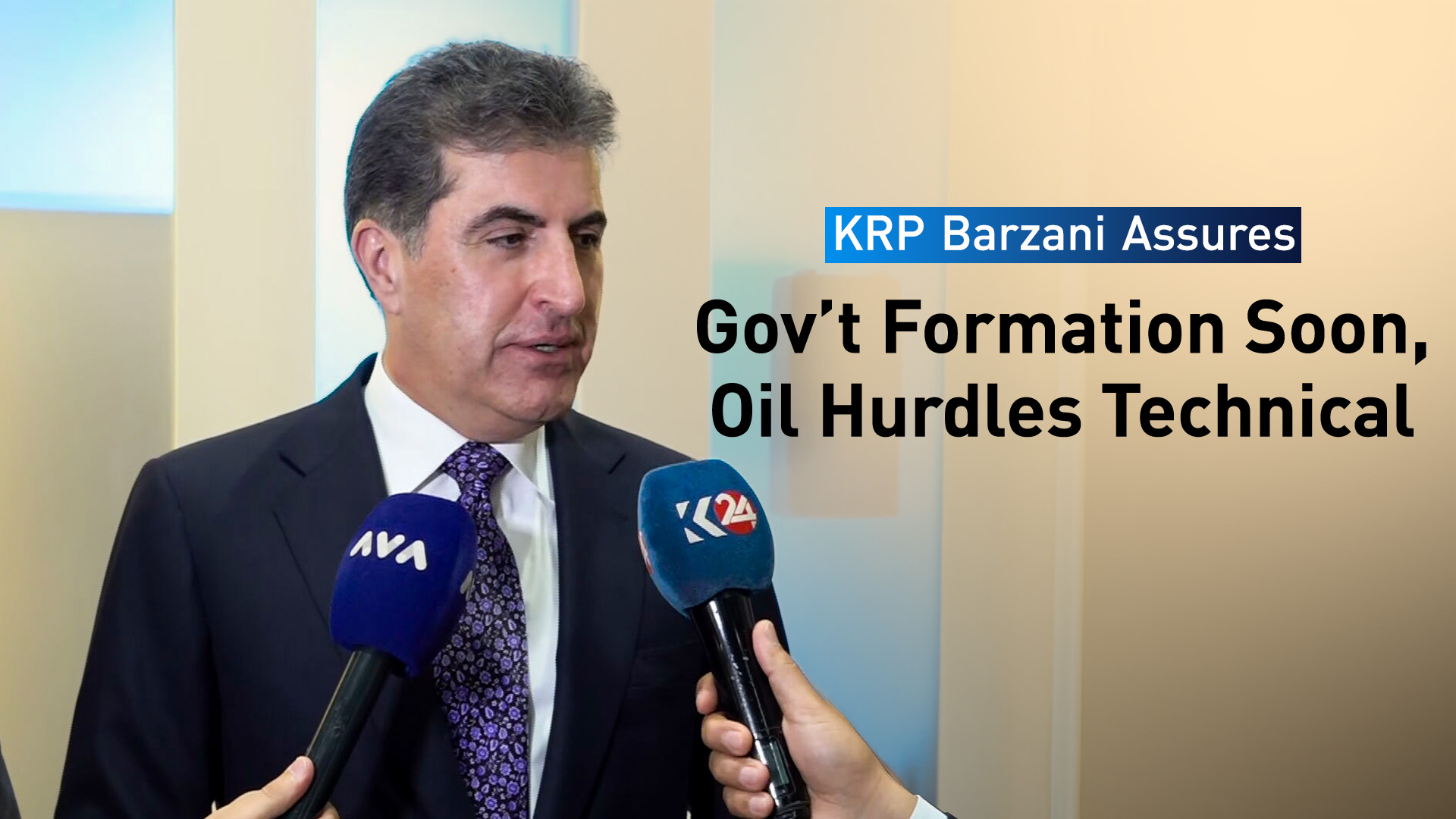KRP Barzani Assures: Gov’t Formation Soon, Oil Hurdles Technical
“There are still some technical issues preventing the resumption of oil exports. The KRG has completed all necessary preparations, and we are ready to restart exports via the Iraq–Turkey pipeline as soon as possible," he stated.

By Kamaran Aziz
ERBIL (Kurdistan24) – Kurdistan Region President Nechirvan Barzani announced that the Kurdistan Democratic Party (KDP) and the Patriotic Union of Kurdistan (PUK) are firmly committed to finalizing the formation of the new regional government cabinet without delay, asserting that both sides aim to avoid prolonging the process into the summer months. At the same time, he reassured observers that the delay in resuming oil exports from Kurdistan is due to technical, not political, issues.
President Nechirvan Barzani’s remarks were delivered during a press conference in Abu Dhabi on the sidelines of the 2025 Abu Dhabi Sustainability Week summit. The event also featured the launch of the “Visit Kurdistan” platform—a strategic initiative aimed at boosting foreign investment in the region’s burgeoning sectors, from energy and tourism to trade and agriculture.
Speaking candidly about the government formation process, Barzani stated, “We’re in serious negotiations with the PUK. The Newroz and Ramadan holidays delayed the process somewhat, but we’re on a positive path. Both sides agree that the new government must be formed soon and should not be postponed until July or August.”
The 10th cabinet of the Kurdistan Regional Government (KRG) has been subject to extensive internal discussions since the last regional elections. Amid rising public expectations and pressing governance needs, Barzani’s affirmation signals a renewed push toward unity between the Region’s two historical political powers.
On oil exports—a lifeline for the Kurdistan Region’s economy—Barzani offered a clear assessment. “There are still some technical issues preventing the resumption of oil exports. The KRG has completed all necessary preparations, and we are ready to restart exports via the Iraq–Turkey pipeline as soon as possible.” Exports have been halted since 2023 following a ruling by the Paris-based International Chamber of Commerce, which led Turkey to suspend the pipeline's operation.
While emphasizing the readiness of the KRG, Barzani pointed out that the delay is no longer in Erbil’s hands. “Our technical teams have done everything required. We are waiting for others to resolve their side of the logistical and legal challenges.”
Barzani also used the occasion to underline the importance of public-private partnerships and the private sector’s role in Kurdistan’s development. “I firmly believe that the private sector is the engine of progress in any country. In Kurdistan, we must open the door for the private sector to play its role,” he said. “If we compare the period before and after the Board of Investment was established, we see tangible progress—and we must not take that for granted.”
In addition to addressing domestic affairs, Barzani commented on Iraq’s position amid the broader regional turmoil, particularly escalating tensions involving Iran, Israel, and other regional actors. Commending the federal government, he said: “The Iraqi federal government, under the leadership of Prime Minister Sudani, has worked hard to keep Iraq out of the escalating regional conflicts. Iraq already has many challenges of its own and should not become entangled in external crises.”
President Barzani’s visit to Abu Dhabi also included a high-level meeting with UAE President Mohammed bin Zayed Al Nahyan, which he described as “very positive and extensive.” A key takeaway from the meeting was the possibility that the UAE may soon appoint a special envoy for investment in the Kurdistan Region—an unprecedented diplomatic and economic gesture that could significantly enhance bilateral ties.
“The UAE is seriously committed to supporting investment in Kurdistan,” Barzani stated. “In fact, they may soon appoint a special envoy for investment in the region—this would be a major step, and discussions are already underway. An official announcement could be made soon.”
He also noted that the Kurdistan Region is increasingly viewed by Emirati and international investors as a strategic entry point for accessing the wider Iraqi market. “Currently, the volume of trade between Iraq and the UAE, including through Kurdistan, stands at around $30 billion. We aim to increase that figure,” Barzani concluded.
As Kurdistan navigates its way through economic challenges, political transitions, and regional uncertainty, President Barzani’s comments point to renewed momentum in both internal governance and foreign economic engagement—a dual track that may define the Region’s next chapter.
